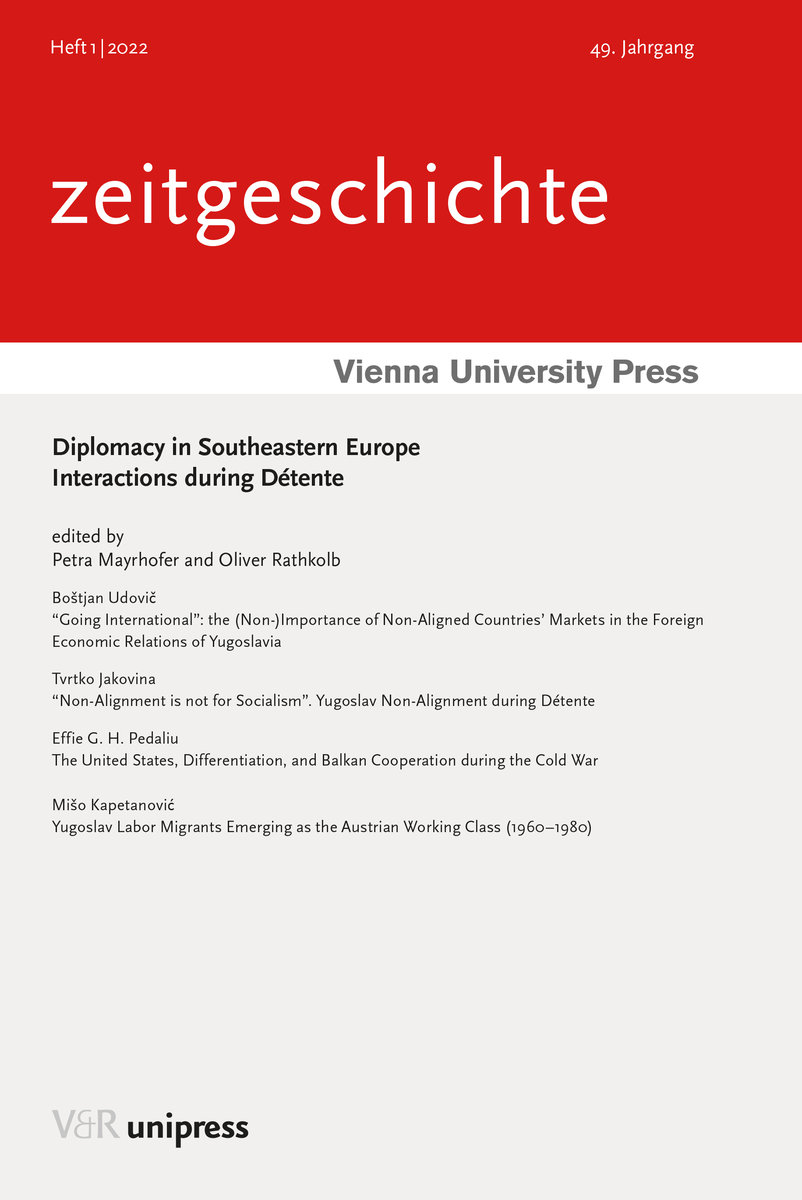This issue of zeitgeschichte off ers a comprehensive survey of aspects of Yugoslav foreign policy during Cold War détente. Due to its geostrategic location on the Balkan peninsula, Yugoslavia became an important focus for the U.S.S.R. and the United States during the East-West confl ict. After the break with Stalin in 1948, the Yugoslav "leader" Tito sought to position Yugoslavia as a non-aligned state on the international level and played a hegemonic role in the Non-Aligned Movement (NAM). The articles analyze Yugoslav policy in the 1960s and 1970s, examining its intentions, its developments, its strategic advantages, and its limits in the context of (geo-)political, economic, and cultural circumstances, with a focus on non-alignment as a leitmotiv of Yugoslav political ambitions, political and economic relations between Yugoslavia and countries of the NAM, the role of the Balkans in U.S. Cold War policy, and aspects of Yugoslav labor migration.



